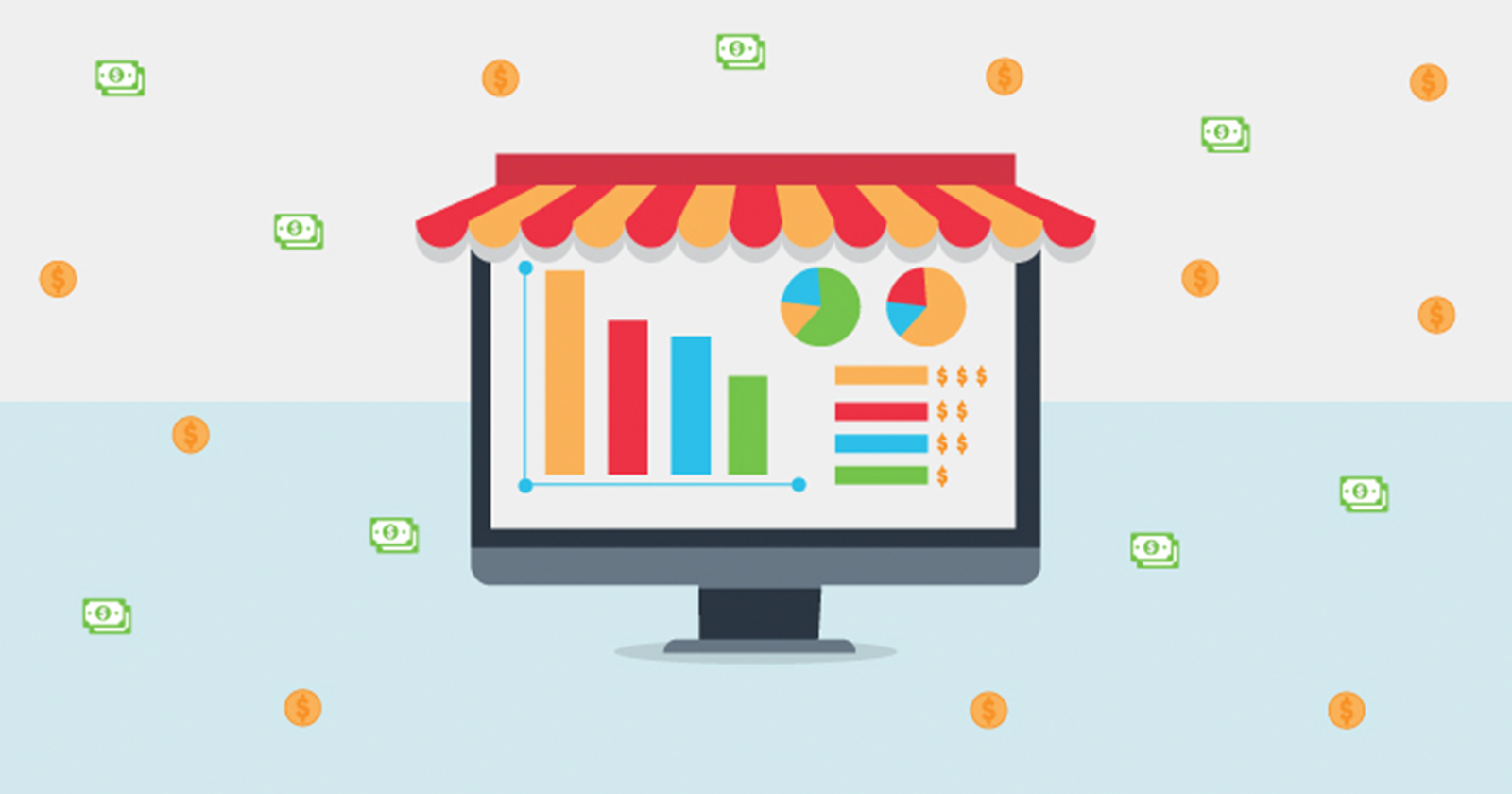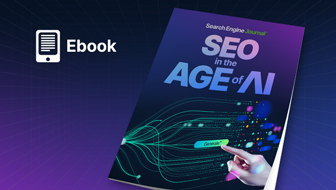This is a sponsored post written by Atomic Reach. The opinions expressed in this article are the sponsor’s own.
When it comes to shopping, many customers have decided to take their business online.
Statista has estimated that 1.92 billion global buyers will participate in ecommerce activities in 2019. The number is expected to rise to more than 2 billion by 2021.
This demand for online goods has caused companies to be more creative in how they reach audiences online.
From dynamic email messaging to voice and visual search, companies have had to pull out all the stops to capture online audiences. Many of these tools are made possible by the power of AI and automation.
AI has evolved to give marketers a leg up in improving their ecommerce marketing efforts.

AI has also allowed marketers to approach consumers with unprecedented levels of personalization and customized messaging.
There are a variety of ways AI has changed ecommerce, especially within the last decade. Understanding how this technology has evolved will enable you to see how AI-based solutions can impact your ecommerce marketing.
So, take a look at five ways AI has changed ecommerce.
1. AI Can Help Decrease Cart Abandonment
Abandoned cart follow-up emails have an average open rate of 45%. This number is likely directly related to email marketing automation.
An abandoned cart is one of the most direct signs that a customer encountered a technical glitch or unfavorable experience before purchase. They were only a few clicks away from completing a purchase, and transitioning from a lead to a customer.
Marketers can now use AI to take advantage of this initial interest by following up.
Automation is an excellent way to bring customers back, while also collecting information that can help you further prevent cart abandonment is with a triggered email that includes a survey.
There are a variety of reasons customers choose not to complete a purchase. For example, according to Baymard, the top two reasons customers abandon their carts are high extra costs (55%) and the need to create an account (34%).
Understanding the reasons why your customers are not completing a sale allows you to remedy the problem and make the purchasing process all the more streamlined and straightforward.
Marketers can also use AI tools to target customers based on their online behavior, and the level of interest they have shown in products.
These tools can use machine learning to help marketers decide which leads would more than likely convert, and which may abandon their carts.
From this information, marketers can use these tools to determine the best content to distribute to target audiences.
2. AI Has Facilitated the Rise of Voice Search
A study by comScore predicted that by 2020, 50% of all web searches will be conducted by voice.
With the rise of devices like Alexa, Echo, Apple devices that use Siri, and the Google Home, customers can search for products by using their voices.
As a result of this, businesses are having to ensure their products can be found by voice search.
Companies have to begin to optimize their websites for audible searching. For example, many companies can now use machine learning by allowing customers to shop via Alexa on their own websites.

Customers are looking for more convenience in their ecommerce shopping process. Voice search allows customers to search for items without the need for a laptop or phone, making the shopping experience even more efficient.
In addition to voice search, marketers should also begin to plan for visual search, as more and more customers are shopping for products with the use of images.
Some companies are creating apps that allow users to take photos of an object and search for it on their marketplace. These processes would be impossible without the help of AI and machine learning.
As companies continue to optimize their approach to ecommerce marketing, voice and visual search are going to continue to take center stage.
3. AI Allows Marketers to More Easily Target Specific Customers
AI takes away the guesswork when it comes to appealing to ideal buyers. Instead of having to create a one-size-fits-all ad, companies can now create ads that are targeted at specific buyers depending upon their online behavior.
Marketing automation and AI tools make it easy to collect buyer data, create dynamic ads that take this information into account, and distribute relevant ads and content on platforms where ideal buyers are likely to see it.
AI tools have even led to more effective retargeting strategies. Now, social media platforms like Facebook make it easy for businesses to retarget ads in places where customers go online.
Also, AI tools are becoming sharper at reading customer behavior and determining intent.
A company that has done a great job with this is StichFix. Every month, the apparel company sends product recommendations to customers based on customer feedback, algorithms, and trends.
From there, customers can choose to keep the items or send input for a more tailored selection.

This new era of robust AI tools cannot only gain more advanced information about customers, but they can also create algorithms that make it easier to reach target audiences.
4. AI Can Help Improve Search Results
A marketer can create the most engaging and effective web copy in the world. However, it won’t help them reach their sales goals if customers cannot find it.
More and more customers are finding products using search engines and marketplace search.
Over 40% of ecommerce traffic comes from organic Google searches. Therefore, SEO is vital to the success of an ecommerce store.
SEO-based AI tools can:
- Conduct site performance analysis.
- Help with keyword research.
- Optimize content.
- Recommend relevant tags.
- Guide marketers on the best times to publish content.
A user-friendly website with relevant keywords, meta descriptions, and tags can go a long way in reaching ideal buyers.
Consequently, AI tools can help marketers drive more traffic to their site and organize content in a way that encourages buyers to seamless flow through your ecommerce store.
Today’s marketers are heavily concerned with the customer experience and developing websites that rank high on search engines.
SEO-based AI tools can take some of the guesswork out of selecting the right keywords, publishing the best content, and understanding how to improve your SEO.
5. AI Allows Companies to Better Retain Customers Through Intentional Follow-Ups
Think about how you would feel if you made a purchase from a company and never heard from them again. It is likely that you would think they did not appreciate your business.
Savvy marketers will understand the importance of the follow-up. However, if marketers are working with thousands of customers who are at various stages of the buying process, it can be challenging to always get the timing right on a follow-up strategy.
Repeat customers are worth their weight in gold and the numbers prove this is the case – 61% of SMBs report that more than half of their revenue comes from repeat customers.
It can cost five times more to acquire new customers than to keep the current ones.
The average repeat customer spends 67% more in 31 to 36 months with a business than zero to six months.
Customer retention is essential to long-term profitability, and today’s marketing automation and AI tools are making this a lot easier to accomplish.
Robust email marketing software can help you trigger promotional messaging, product recommendations, and relevant content to repeat customers.
Also, as mentioned above, AI tools have evolved to allow marketers to predict the actions of individual customers based on their online behavior and purchasing history.
Fortunately, these AI tools take the uncertainty out of creating a digital marketing strategy for each part of the buyer process, especially for repeat customers.
The Future of Ecommerce
Years ago, the very mention of AI brought up images of robots, advanced computers, and futuristic machines.
Today, it is almost impossible to have a conversation about marketing without mentioning AI, machine learning, and automation.
As a marketer, it’s in your – and your customers’ – best interest to use AI tools in ecommerce marketing strategies.
You cannot be everywhere your customers are online. However, an AI ad tool can retarget ads to reach your potential customers on a variety of websites and social media platforms.
You may have no idea as to why your customer abandoned their cart, but an automatically triggered email can collect information that points to why while inviting them back to complete the purchase.
Marketing-based AI tools are similar to having access to a digital marketer that has endless potential for learning and understanding customer behavior. These tools are crucial as ecommerce shopping is in no way slowing down.
You want to be sure to have these resources at your disposal as they can be the difference between stalling on a campaign or creating effective ecommerce marketing strategies that drive sales.
Image Credits
Featured Image: Image by Atomic Reach. Used with permission.
In-Post Photos: Images by Atomic Reach. Used with permission.







